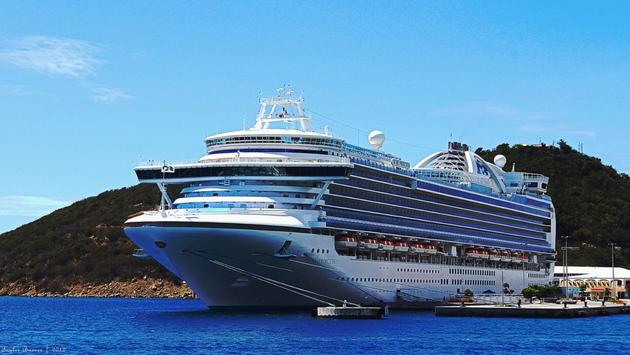Princess Cruises Says None of Its Crew Implicated in Ruby Princess Debacle


A day after an Australian commission eviscerated health officials over the Ruby Princess debacle, Princess Cruises released a statement expressing sorrow over the incident but insisting that the inquiry found “none of our people misled public authorities.”
The Ruby Princess cruise ship was allowed to dock in Sydney in March in the midst of the coronavirus pandemic and allow nearly 2,700 passengers to disembark.
The 320-page report from the Special Commission of Inquiry into Ruby Princess, launched on April 15, was sent to New South Wales Premier Gladys Berejiklian. It said that health officials “committed a litany of ‘inexplicable and inexcusable’ failures before the arrival of Ruby Princess in Sydney on March 19, leading to a public health emergency that could have been avoided.
It said NSW Health should have ensured all cruise ships were aware of the change to the definition of a ‘suspect case’ for COVID-19, with 120 people falling within this category by the time Ruby Princess had docked. The 18 viral swabs that were taken from passengers and crew for COVID-19 testing should have been collected by an on-board health assessment team and sent for immediate analysis. The delay, the commission said, was ‘inexcusable.’
Princess Cruises said it welcomed the completion of the independent commission and “expresses profound sorrow at the impact COVID-19 has had on Ruby Princess’s guests, crew and their families. Our hearts go out to everyone who has been affected, particularly those who lost loved ones.”
But, the cruise line said, “The Commission’s report confirms that none of our people — the Captain, the ship’s doctor, or members of our shore side port agency team — misled public authorities involved in Ruby Princess being permitted to disembark guests on March 19.”
The role of Princess Cruises, according to the commission, was ‘the responsibility for the wellbeing of the passengers and crew. However, Ruby Princess departed Sydney on March 8 with just 27 viral swabs in addition to a separate supply of rapid influenza testing kits.’ The company should have ensured its medical staff were aware of changes to Communicable Diseases Network Australia’s definition of a ‘suspect case.’
“This finding is of great importance to us because it goes to the integrity of our people,” Princess said in its statement. “In our more than 20 years in Australia, we have always sought to cooperate honestly and professionally with officials in accordance with the regulatory environment.”
